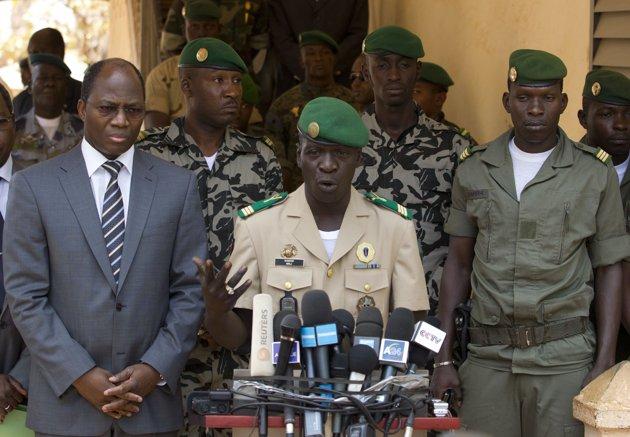Sudanese Women’s Votes
Without doubt, the statistics of Sudan’s elections will be pored over and debated at length, and the interpretation of every figure will be open to dispute. But there seems to be one consistent feature across the country. Women were the majority of the voters. This was most striking in Darfurian IDP camps, where registration levels were often low, and where some reports are that three quarters or even more of the voters were women. But in cities and villages across the nation, according to the people I have spoken with, women voted at least in equal numbers to men, and usually considerably more.
I don’t know if this is because women are more civic minded, more committed to democracy and civil politics, or have a longer-term view of political developments and so are less easily swayed by day-to-day events. Perhaps the women’s list, which will deliver 25% of the members in every elected legislature, has encouraged more women to vote.
But the consequence is that, whoever stands for election in Sudan in the future, will have to bear in mind that she or he will be elected principally by the votes of women. I wonder what effect this will have on future election campaigns, on the composition of party leadership, and on Sudanese political life in general.







Wonderful to see Sudanese women so active at the polls. But is this a new phenomenon? They were active in the independence movement and throughout the years until late 80s.
I wonder if it will actually mean anything at all. The withdrawal of all the opposition groups leaves very little choice. It would seem to me that unless it becomes clear that women overwhelmingly supported one group or another, not much will change in terms of attention to their interests…but I hope I am wrong!
Interesting post. This is indeed something that warrants more attention, especially in African politics.
This reminds me of Dr. Wantchekon’s study in Benin where he found that women voters prefer programmatic platforms over clientelistic policies because they were more likely to benefit from public goods rather than patronage. He also notes that, because most inter-regional traders are women, they are better informed about conditions outside their particular region and thus value broad-based public policy.
If women hold a more cosmopolitan perspectives, candidates and parties may have to reconsider their tactics as an increasing number of women become active voters.
Of course, this may not be applicable to Sudan, and this likely requires a thorough context-specific analysis for separate cases; but interesting nonetheless to consider.
Dear Pam
It is not a new phenomenon, it is deeply rooted in the history of the Sudanese Women Movement, a movement that started before independence. The Sudanese Women Association (Alitihad Alnissai Alsudani) was established in 1952.
Women had the right to vote since the first sudanese elections. In 1965 the first sudanese woman was elected to parliament, Fatima Ahmed Ibrahim, member of the Sudanese Communist Party.
It is deeply rooted in that famous political laboratory, that brought forth many of the bright political leadership of the Sudan, the Khartoum University Student Union, where women from all political shades and complexions more than distinguished themselves, leaders such as Fatima Babiker, Dina Shekh Eldin, Victoria Yar, and many others.
This movement grew further with the Sudanese Socialist Union, of the late President Ga’afar Nimeiri, when many were elected to the People’s Assembly, and which period also saw the growth of women leaders of the opposition to the Nimeiri regime, women like Sua’ad Ahmed Ibrahim, the late Sarah Alfadil, and many more, who were very active in the opposition, like their fellow country men,and more.
It is gratifying that the NCP followed the natural course of history,and endorsed the 25%.
In the South women are contesting as independent candidates, despite the machine and machinations of the SPLM/A .
It is thus not a new phenomenon, Sudanese women certainly have the civic mind, the commitment to democracy and civil politics, and they may have better inspiration from the history of the Sudan and from world leaders like Indira Ghandi and Winnie Mandella.
In fact they stand to achieve a lot with or without affirmative action.
Alex, how interesting that women in the Darfur camps not only voted more than men, you say, but that they voted at all, with Abdul Wahid so strongly in favour of a boycott. Do you know what the voting pattern in the camps tells us about Abdul Wahid’s support there these days? Many people are saying that JEM stopped voters in areas under its control. Was there any coercion in the camps?
The interest of women in voting – and presumably in a negotiated rather than violent settlement of conflict – reflects the experience of the church-supported people-to-people peace process in southern Sudan, where the dynamism and determination of women was very apparent. They really gave the SPLA a bashing. I particularly remember one young Nuer woman who told the men: “This war is your fault. We women are tired of giving birth to children only to see them slaughtered.†All the female delegates applauded her when she proposed a “revolution†of her own. “We will stop giving birth!â€
A good friend of mine, Awut Deng, walked 30 miles to mobilize women – despite being in the difficult early stages of pregnancy – because the New Sudan Council of Churches organising the process had no budget for mobilization. Everywhere she went women told her they wanted peace because their children were dying. As one delegate said, “In the past we fought over cows, but only fighters died. Now even children and women are killed.†I imagine the thinking of women in the Darfur camps is not so different.
Awut spoke anywhere and everywhere. She interrupted the work of courts to ask: “May I speak?†She spoke to students and teachers in schools. She invited herself to the naming of children. She used, she told me, “any little corner I could find.†She slept in the bush and in the street and went without food for days.
If your impression is correct – you don’t give any details – surely one conclusion must be that more effort must be put into supporting a peace constituency of youth, women and other members of civil society, to limit the margin of manoeuvre of the soldiers and politicians, especially given the late-in-the-day preference of so many of the latter for boycott – unsupported, as far as I can see, by any back-up plan. Viewed from Khartoum, is the plan as it seems to be from here – that there is no plan?
Hi Alex, and thanks for writing about this. I’m not sure whether women voted in larger numbers, its still not clear, but my guess is they probably have since they registered in most places in larger numbers. Even in eastern Sudan, which is often called the most culturally conservative region in the country (when it comes to women in public life), women outregistered men- for example in Red Sea where according to NEC they were close to 64% of the registered , and in Kassala where they were almost 55%. Also according to UNIFEM-Sudan 40% of registered women in the state where in Hameshkorieb, Telkuk and North Delta districts , which are very conservative areas. So this is really encouraging, and like you say, in combination with the quota provsions, should make political parties pay attention to women voters more in future (if they want to win that is.) The question for me is that historically women voters were seen as a bloc that’s easy to manipulate- to pay to vote a certain way, or commanded to vote a certain way (by the Nazirs etc), taken advantage of given higher levels of ilteracy etc, or are just susceptible to pressure to vote a certain way by male members of the family. I wonder to what extent this is the case, and my guess is, things may be more nuanced than that and from my experience at least, Sudanese women do tend to be more civic minded, and perhaps have more hope for a change through engaging in politics.
You don’t know why rate of women vote is high, because the NCP pay alot of money to bring them to vote for him. I have a question: why the US supports Albashir?
Dear De Waal,
Your assumptions are wrong in two ways. First of all, according to the recent Sudanese census: in South sudan, there are more men than women. Therefore, there will never be more women voting than men. Of course, you can claim that you are talking of entire Sudan, but there is no entire Sudan without South Sudan.
Secondly, you are wrong, because, you are using Darfur IDPs to justify your statistics. If possible, can you provide us with how many Darfuri IDPs voted in comparisons to those who never did.
Thanks.
Steve Paterno
Sudanese women were mentioned in the bible (Acts of the Apostles). Our Candace was the leader of the army too .Women played significant roles against foreign domination in the 19th century. Womens’ participation in the national movement actually began in the 1940s ( before the formation of AlIttihad alNisaiy in 1952.). Very few people know that Sudanese women get equal pay to men in Sudanese Universities .That is not the case in all British universities.
We now know why the armed rebels were against elections. Their only claim to be representatives of Darfur is the gun. Now there is a new equation in which the real stakeholders ( who are not resident in Paris or Holland) will be heard. Their collective peaceful votes are louder than artillery and will help resolve the crisis. They will not be mere pawns in the board of the ICC or other organisations which are determined to destabilise and demonise Sudan.
What surprises me is the reluctance to acknowledge that our Electoral Law is very progressive. With women and proportional representation ,it is ahead of Electoral Laws in most Industrial countries. It is a vehicle of modernisation.
Another relevant point is the fallacy of the predictions of bloodshed and conflict. Women and men stood in British style queues for hours in order to vote. Many analysts will have to swallow their words as we say in Sudan.
insightful article Dr. De Waal, but after the results of this disputed elections started to come out; I have to to be skeptical about the reasons behind the high rate of participation by Sudanese women, all of the woman list has gone to NCP, the same party that applies extreme laws against women such as the infamous “Public Order Act” that punish women for wearing pants. we all remember the well known journalist Lubna Hussain and her case to be lashed publicly for wearing pants and the mass demonstrations by also Sudanese Women followed this decision, of course nothing happened and the “POA” still remain. this leads to one conclusion which is this high rate of participation is planned and organized by NCP to encounter this problem and show that Sudanese women are happy and don’t mind being judged by punch of Islamic extremists. if you look closely into this, you will find out that 75% of women in Sudan are open minded and educated and refuse to be forced to wear this or that, those women did not take part in this election and definitely did not vote for NCP.